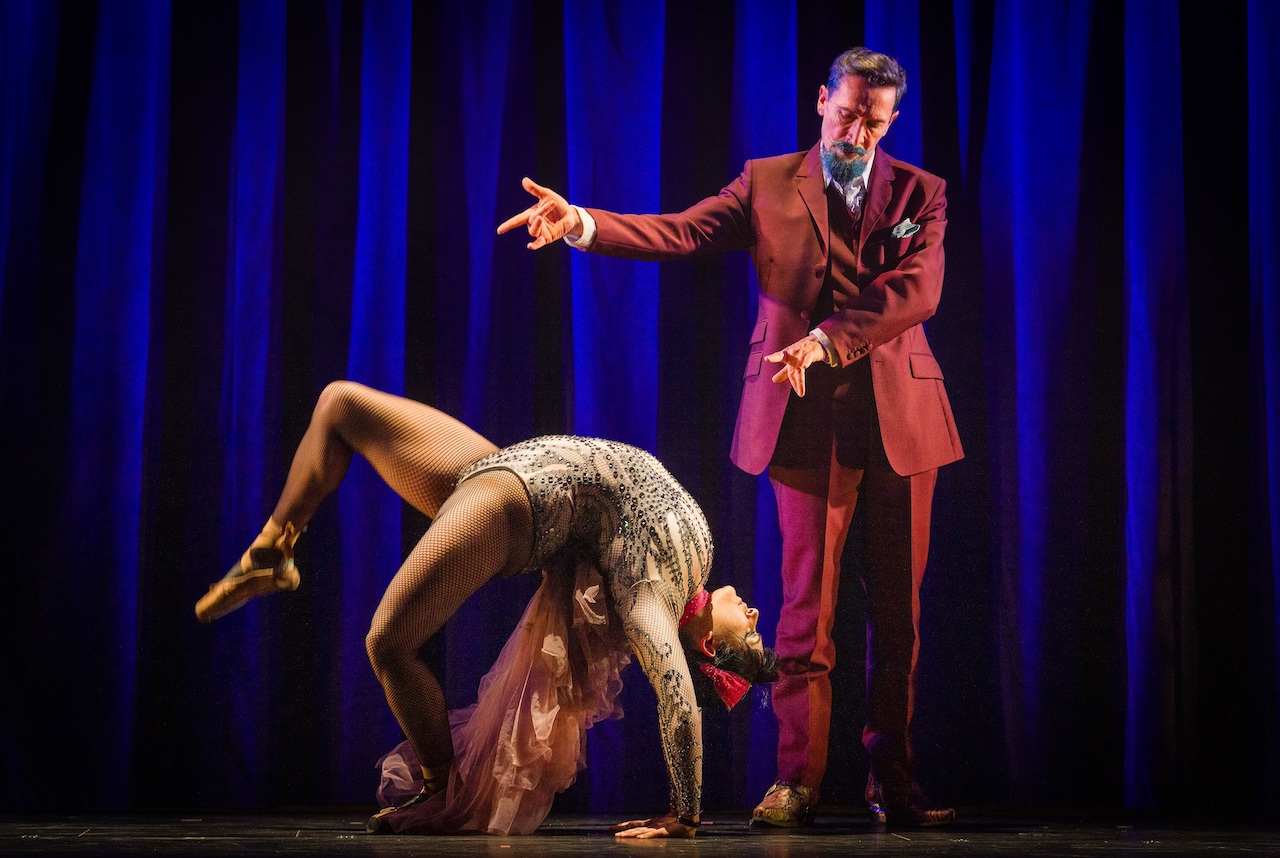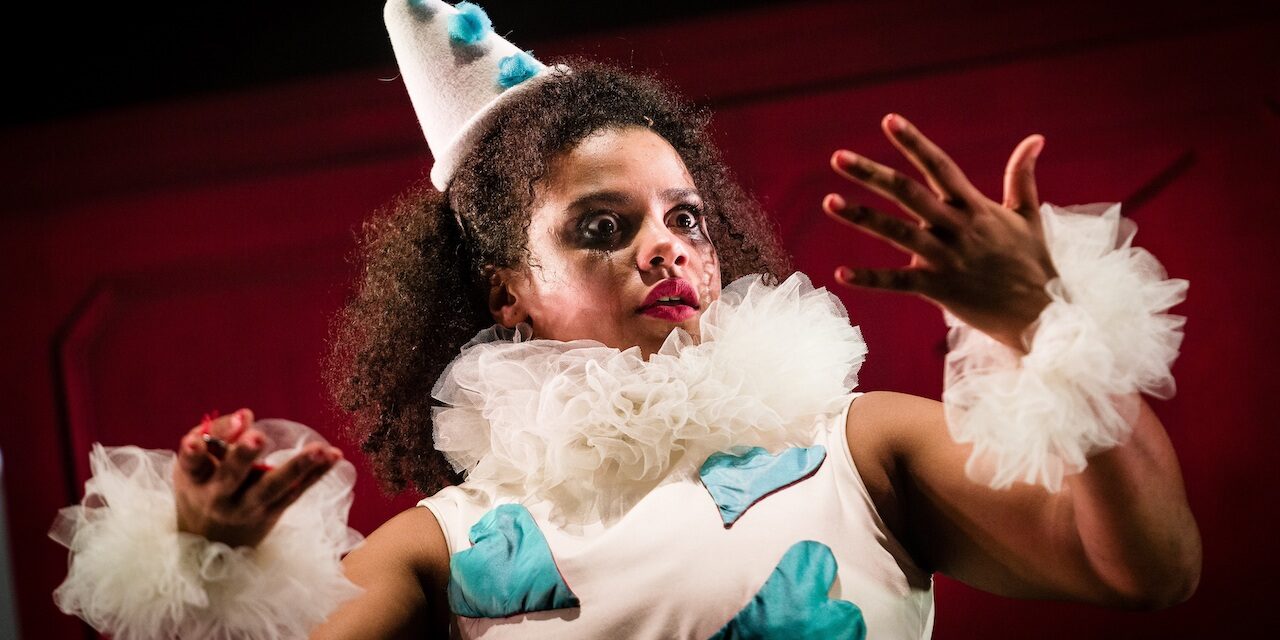
2 – 10 February
There is no doubting the sincerity of purpose that has led Emma Rice to write and direct a new version of the Bluebeard myth. She has said that she has become ‘haunted by the regular chime of women being attacked, murdered and abused’. Sarah Everard and Zara Aleena are two recent victims whose stories are, indeed, deeply disturbing. Very near the end of this play there is an impassioned cry: ‘I should be able to walk home alone!’ With those simple words the sad reality of violent misogyny is made crystal clear.
Unfortunately, elsewhere in Blue Beard such crystal clarity is sadly lacking. It features three seemingly disconnected narrative strands involving a Lost Brother (Adam Mirsky) and Lost Sister (Mirabelle Gremaud); a convent led by a bearded Mother Superior (Katy Owen); and finally, there is Treasure (Patrycja Kujawska), who has two lively daughters named Trouble (Stephanie Hockley) and Lucky (Robyn Sinclair). Those sisters encounter a smooth-talking magician, Blue Beard (Tristan Sturrock), who takes Lucky as his latest wife. All these characters are presented in a determinedly non-naturalistic fashion. There is comical choreography devised by Etta Murfitt, a number of impressive magic tricks deftly performed by Sturrock, some acrobatics, and more than a smattering of robust humour – the convent is the sisterhood of the ‘Fearful, Fucked and Furious’, with Owen depicting a wickedly salty-tongued Mother Superior. There are pantomime-like moments of audience participation too. Composer Stu Barker’s tuneful songs are skilfully performed, and all-in-all a wide range of theatrical skills is displayed by a very talented cast. Many sequences are entertaining of themselves, but there is a pervading uncertainty of mood and, by the interval, a somewhat disquieting lack of direction.
In the second half, despite all its glitz and showbiz glamour, it becomes clear that the story of Blue Beard the magician is the weakest of the different tales. In a scene of comic book violence, Treasure, Lucky and Trouble finish him off. This depiction of a violent death as the stuff of comedy seems somewhat inappropriate in a play about misogyny, though as the violence is carried out by women perhaps the inappropriateness is the point.
A clearer sense of purpose arrives very near the end of the play and, in my opinion, too late. The simpler, poignant story of the Lost Brother and Lost Sister proves to be the real essence of this play. In a chilling CCTV sequence showing a lone woman being followed along empty streets the essential seriousness of Rice’s theme is finally confronted head-on. There is a seismic shift in mood and a powerful sense of pain and rage is expressed in an unadorned, direct fashion. This brings Blue Beard to a moving conclusion, but one that sits rather uncomfortably with all the flamboyant unreality that has gone before.
Given her hugely impressive track record, any play directed by Emma Rice is worthy of serious consideration, and Blue Beard certainly has much of the wit, inventiveness and imagination that characterised, for example, her Wuthering Heights, Malory Towers and, of course, Wise Children. For some, that will be enough to recommend this play. However, I was left feeling disappointed by a play that was far too hesitant in getting to grips with the realities of its own, heartfelt theme.
★★★☆☆ Mike Whitton, 7th February 2024
Photo credit: Steve Tanner


